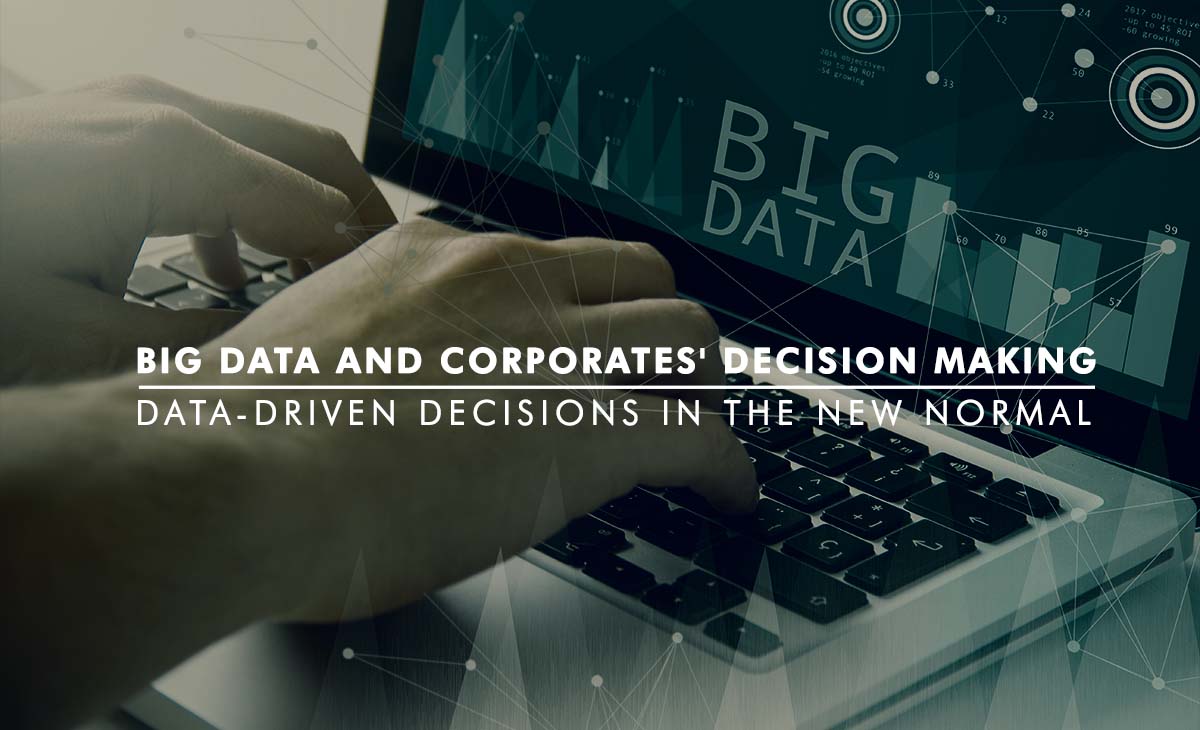
Big Data and Corporates’ Decision Making: Data-Driven Decisions In The New Normal
“Big data forms the core of organizations, especially with the rise in digital transformation. AI and IoT become an integral part of a business practice leveraging on data-driven decision making”.
Big data refers to the usage of technologies to analyze and process the data, derive insights from it, and make decisions that are not generally possible through traditional methods of decision making.
Using BigData, the large volume of data, both in structured and unstructured forms, is accessed, handled, and analyzed to derive business decisions.
Data and Analytics leverage the potential big data holds and use it to enable data-driven decision-making and gain momentum.
Any data-driven decision-making follows a set of strategies that helps in insightfully utilizing the volumes of data.
Data-Driven Decision Making:
The essential elements of data-driven decision-making entail the following elements:
Formulating the Data Strategy:
Data Strategy is a necessary step that is a prerequisite to any data analysis-related activity.
It is a way to oversee and improve how we acquire; store, manage, share, and use data within and outside your organization.
A big data strategy defines a business’ success amid extensive competition.
Utilizing the technologies, especially emerging and disruptive ones, to derive value-based insights leads to decisive data-driven decision-making.
Identifying the Data Resources:
Identification of data resources is crucial to analyze data more effectively.
In instances, organizations invested massively in technologies and did not get the desired results, which incurs further losses.
Hence, segregating the process of identifying the data from resources such as social media sources, streaming data, and publicly available data eases the entire process, ensuring reliable data.
Accessing and Managing the Data:
Innovative computing systems and methods provide the speed, power, and flexibility needed to access massive amounts quickly and types of big data.
Still, it often goes unnoticed due to enormous data computation processes.
Reliable access, data integration methods, and governance models to store data result in storage and data preparation processes for analysis.
Low-cost data storage tools and cloud-based systems add to the process of accessing and managing the vast chunk of data.
Analyzing the Data:
Effective data analysis leads to robust decision-making.
Gone are the days when organizations depended on decisions based on industry-based past performance, current trends, and future forecasts.
With the changing times and rising digital transformation, high-performance technologies such as grid computing or in-memory analytics analyze big data relevant to decision-making.
Big Data – Devising Digitally Driven Decisions:
Data-driven decisions don’t add much if they are digitally irrelevant.
Organizations in different sectors deal with various business practices that are different from each other but are complex.
Devising digitally-driven decisions embed emerging technologies and API integrations that lead to devising strategies that lead to digitally-driven decisions.
However, the challenges to Big Data and data-driven decisions are numerous.
Data leakages, compromised data security, and cyber-attacks remain some of the organizations’ common challenges these days.
According to a recent survey from Statista, the US alone reported 1506 cases of data breaches in 2019.
This substantial rise in the data breaches figure from 498 cases reported a decade ago marks the access of cyber attackers to digital – data.
Furthermore, organizations are implementing a comprehensive and robust cyber-security framework that mandates governance compliance and guidelines to combat such instances.
Such guidelines enable organizations to implement cyber-security tools and strategies that mitigate such cyber-attacks cases.
Since the pandemic, the significance of implementing governance and compliance-based strategies has surged even more, with the rise in digitized practices and change and evolvement in BCP’s (business continuity plans).
These evolved business plans entail digitally transformed tools and practices that enhance business practices more relevantly.
Furthermore, organizations are moving towards more comprehensive solutions to address these uncertain new realities.
By deploying a full array of security technologies designed to work together in an integrated framework, organizations are embarking on the journey of digital business with confidence.
Conclusion:
As the world moves towards an all-new digital age, organizations are moving towards technologies and increasing their dependence on technology to collect, analyze and store personal data.
Leveraging such technological investments allows organizations to delight their clients in the short run and retain them in the long run by exceeding their expectations.





